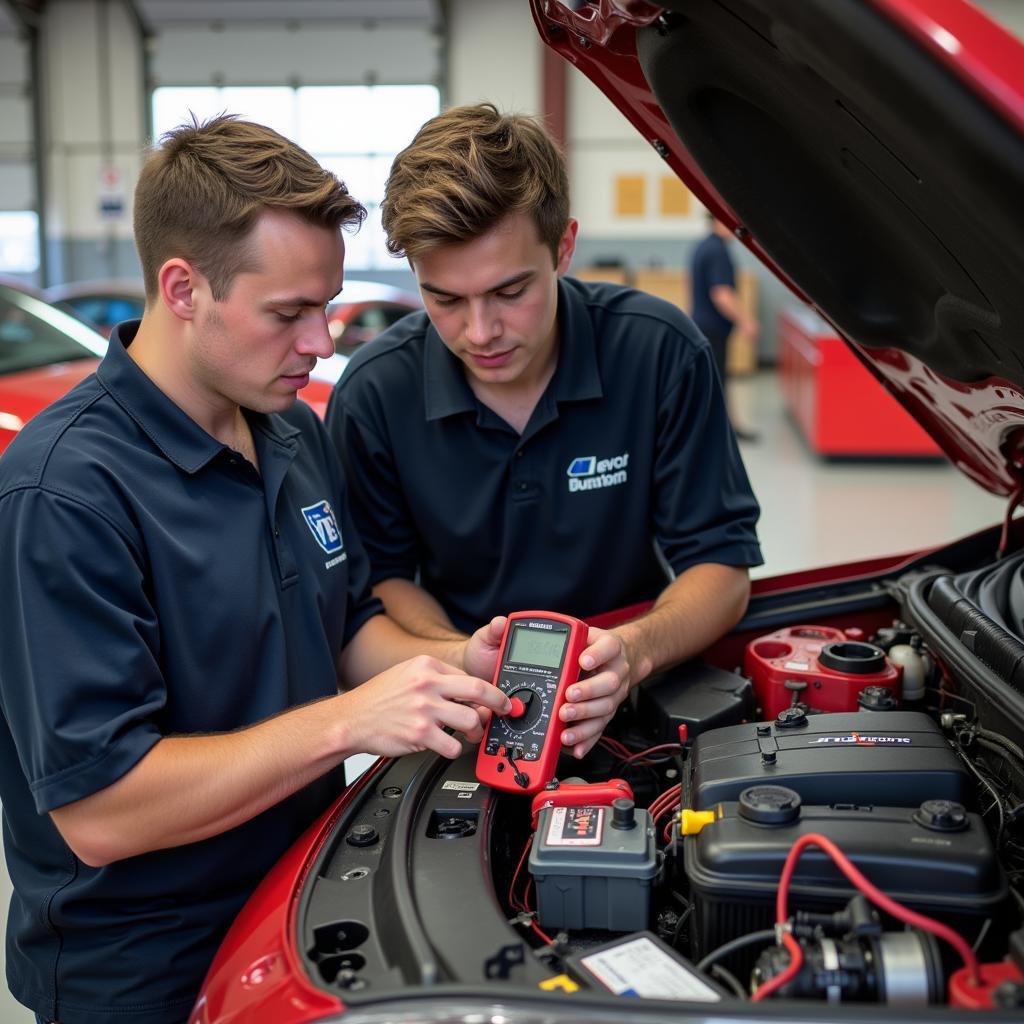Overheating is a common car problem, often stemming from a faulty radiator. Knowing how to diagnose and fix radiator issues can save you time and money. This guide offers a comprehensive overview of Car Radiator Fixes, from simple DIY solutions to more complex repairs requiring professional assistance.
Understanding Your Car’s Radiator
The radiator is a crucial part of your car’s cooling system, responsible for dissipating heat from the engine coolant. A malfunctioning radiator can lead to overheating, potentially causing severe engine damage. Therefore, understanding its function and common problems is essential for any car owner.
Radiator issues can manifest in various ways, including leaks, clogs, and damage to the fins. Regular maintenance, such as flushing the system and checking for leaks, can prevent many of these problems. However, if you notice signs of overheating, like the temperature gauge rising or steam coming from under the hood, it’s crucial to address the issue promptly.
Common Car Radiator Problems and Solutions
Several issues can plague your car’s radiator. Let’s delve into the most common problems and explore their solutions.
Leaks
Leaks are a frequent culprit behind radiator problems. They can occur in the radiator itself, the hoses, or the water pump. Identifying the source of the leak is the first step towards a car radiator fix. Small leaks can sometimes be temporarily sealed with radiator stop leak products, but this is rarely a permanent solution. For a lasting fix, how to fix a leaky car radiator provides more in-depth information.
What causes a car radiator to leak? Corrosion, damage from road debris, and worn-out hoses are common causes of radiator leaks.
Clogs
Over time, sediment and rust can accumulate in the radiator, restricting coolant flow and reducing cooling efficiency. Flushing the radiator is a crucial maintenance task that can prevent clogs. If a clog is already present, radiator leak fix car might offer helpful guidance on resolving this issue.
How do I know if my radiator is clogged? Overheating despite a full coolant reservoir is a telltale sign of a clogged radiator.
Damaged Fins
The thin metal fins of the radiator are vulnerable to damage from road debris. Bent or broken fins reduce the radiator’s surface area, hindering its ability to dissipate heat. While minor fin damage might not cause immediate problems, it can contribute to overheating in the long run.
Can I repair damaged radiator fins? Yes, you can carefully straighten bent fins using a fin comb. However, severely damaged fins might require radiator replacement.
DIY Car Radiator Fix: Step-by-Step Guide for Minor Leaks
For minor leaks, you can attempt a temporary car radiator fix using a radiator stop leak product. Here’s a step-by-step guide:
- Allow the engine to cool completely. Working on a hot engine is dangerous.
- Locate the leak. Inspect the radiator, hoses, and water pump carefully.
- Add radiator stop leak. Follow the instructions on the product label.
- Run the engine. Let the engine run for a while to allow the sealant to circulate.
- Check for leaks. Inspect the area again to ensure the leak has stopped. Remember, this is often a temporary solution. You might consider consulting a professional for how long does it take to fix a car radiator for a more permanent fix.
When to Seek Professional Help
While some radiator issues can be addressed with DIY car radiator fixes, more complex problems require professional expertise. If you’re unsure about the cause of the problem or uncomfortable working on your car’s cooling system, it’s best to consult a mechanic. Similar to how to fix a leaking radiator in your car, professional mechanics have the tools and expertise to diagnose and repair complex radiator issues effectively. Also, you might wonder, can flex seal fix a car radiator? While it might offer a temporary fix, consulting a professional is always recommended.
“A properly functioning cooling system is vital for engine health. Don’t hesitate to seek professional help when dealing with radiator problems,” advises John Smith, ASE Certified Master Technician.
Conclusion
Understanding the basics of car radiator fix can empower you to address minor issues and prevent more serious problems. Regular maintenance and prompt attention to warning signs are crucial for keeping your car’s cooling system in top condition. However, recognizing when to seek professional help is equally important.
Need expert assistance with your car radiator? Connect with us at AutoTipPro for professional support and guidance.
Contact us at +1 (641) 206-8880 or visit our office at 500 N St Mary’s St, San Antonio, TX 78205, United States.







Leave a Reply